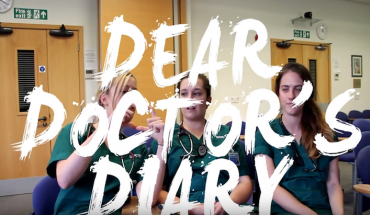The important views, opinions and concerns of specialist nurses working within prostate cancer teams are not being listened to when it comes to patient care, according to a new report published today in the journal, Clinical Nurse Specialist.
The study of nearly 300 clinical nurse specialists working in prostate cancer, led by researchers at London South Bank University (LSBU) and the University of Plymouth, supported by Prostate Cancer UK, revealed that over half (55%) of nurses felt that they did not work in a functional and efficient multi-disciplinary team (MDT), with 12 per cent agreeing that their team was dysfunctional and their views were not respected.
Over half (55%) of nurses felt that they did not work in a functional and efficient multi-disciplinary team (MDT), with 12 per cent agreeing that their team was dysfunctional and their views were not respected.
Only a third (34%) felt that they could constructively challenge all members of the team in meetings.
Cancer care is delivered by multi-disciplinary teams and the relationship between team members is vital. Specialist nurses play a pivotal role in the effective running of the MDT. They manage the complex care of men with prostate cancer and are responsible for representing the views and wishes of patients and their families. Nurses have the most contact with the patient, supporting them from diagnosis, through treatment decisions and beyond.
The results, published today, give rise to concern about an apparent lack of cohesion between team members, feelings of disregard, and increasing time pressures – resulting in patient wishes not being adequately represented within team meetings.
Other emerging themes from the study highlighted that many nurses working in prostate cancer report a ‘lack of interest in non-medical concerns by other team members’ and an ‘inability to constructively challenge decisions or views within the meetings’. Despite having a high level of professional expertise and experience the specialist cancer nurses expressed a variable, often negative, experience of working within an MDT.
Dr Geoff Punshon, who led the research at LSBU’s School of Health and Social Care said: “The MDT is a key component of cancer care delivery but the results of this study indicate that increasing workloads and challenging culture and working practices appear to be presenting significant barriers to effective working. These findings show how vital it is to ensure that the views of all participants in the MDT are heard, discussed and valued.
These findings show how vital it is to ensure that the views of all participants in the MDT are heard, discussed and valued.
The findings also demonstrated that more emphasis needs to be given to patients’ non-medical needs.”
Heather Blake, Director of Support and Influencing at Prostate Cancer UK said: “Specialist cancer nurses are integral to multidisciplinary teams. They are in direct contact with the patients and without them the wishes and wider needs of patients would all too often be overlooked or ignored. It is therefore incredibly concerning that so many nurses working in prostate cancer feel that their views are not valued or respected within the MDT setting.
“We know that men with prostate cancer have a much better experience when they are assigned a dedicated specialist nurse. However, the recent National Cancer Patient Experience Survey revealed some stark variations in access across the UK, with only 52 per cent of men gaining access to a nurse in some areas.
“Prostate cancer is set to become the most common cancer overall by 2030 but as things stand, with an undervalued and diminishing prostate cancer nursing workforce we won’t have the nurses required to support the thousands of men in need. Urgent steps must be taken or we risk losing this vital workforce at a time when we’re going to need them most.”
Julia Taylor, President of the British Association of Urological Nurses (BAUN), said: “More emphasis needs to be given to patients’ non-medical needs to ensure that ‘no decision about me without me’ becomes a reality. Cancer nurses play a pivotal role in representing the patients’ views within the MDT given that they tend to have the most contact with the patient. Their contributions to the MDT would have a significant impact on patient care and experience while utilising their skills and abilities appropriately. With increased emphasis on inter-professional learning including teamwork as a key theme; the study highlights the need for urgent action to move this beyond undergraduate curricula and become embedded into mandatory training and education.”
- New lipid-based pathway discovered as key to memory formation - 25th June 2025
- Crucial link could explain how Alzheimer’s takes hold - 25th June 2025
- Understanding Your Mind Can Improve Daily Life - 25th June 2025







